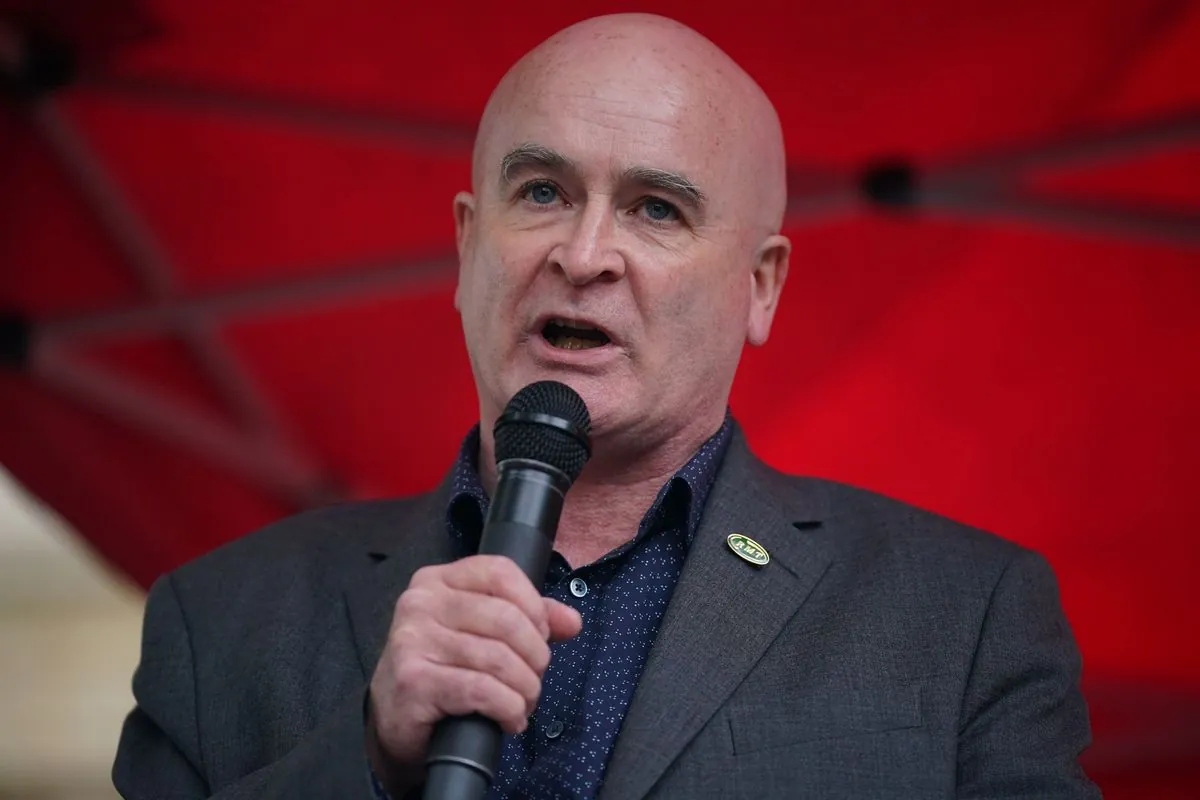Mick Lynch, leader of the Rail, Maritime and Transport Workers (RMT) union, recently made headlines with his bold statements at a Labour conference fringe event. His call for "complete organisation of the UK economy by trade unions" has reignited discussions about the role of unions in modern Britain.
Lynch's rhetoric harks back to an era when union influence was at its peak. The 1970s saw unions wielding significant power, with the ability to halt production through widespread strikes. However, this period also witnessed economic challenges, including the Winter of Discontent in 1978-1979, which saw widespread industrial action across the UK.
Today's landscape is markedly different. Union membership has declined significantly since its peak in 1979, when 13.2 million workers were members. Currently, only 22% of the UK workforce belongs to a union, a stark contrast to the past.
This decline can be attributed to various factors, including legislative changes. The abolition of the closed shop practice in 1990 removed the requirement for workers to join unions in certain workplaces. The Trade Union Act 2016 further restricted industrial action, reflecting a shift in labor relations.
Despite these challenges, Labour's current leadership has proposed a package of new workers' rights. This move has garnered support from union leaders like Lynch, who specifically mentioned Angela Rayner and Louise Haigh as potential allies in implementing these changes.
However, critics argue that focusing solely on employee rights without considering the impact on employers could have unintended consequences for job creation and economic growth. This concern echoes historical debates, such as those surrounding the Industrial Relations Act 1971, which attempted to reform labor laws amidst economic challenges.
"The problem at the moment is that the unions are not in every sector, effectively. We're not in every workplace. We're not able to influence non-union recognised workplaces, whereas up to the 1970s and 80s, we were."
Lynch's aspiration for universal union influence faces significant hurdles. The Trade Union and Labour Relations (Consolidation) Act 1992, while providing a legal framework for unions, also reflects a changed industrial landscape where union presence is no longer ubiquitous.
As Labour potentially approaches power, it may face a delicate balancing act. The party, founded by trade unions and socialist societies in 1900, has historical ties to the labor movement. However, the experiences of previous Labour governments, including the challenges faced during the Social Contract of the 1970s, highlight the complexities of managing union relations while in office.
The coming months may reveal whether Keir Starmer and his team are prepared to navigate these complex waters. The legacy of past industrial disputes, from the 1926 General Strike to the Miners' Strike of 1984-1985, serves as a reminder of the potential for conflict between union ambitions and government economic policies.
As Britain faces new economic challenges, the debate over union influence and workers' rights continues to evolve. The outcome of this discussion could significantly shape the future of UK labor relations and economic policy.
